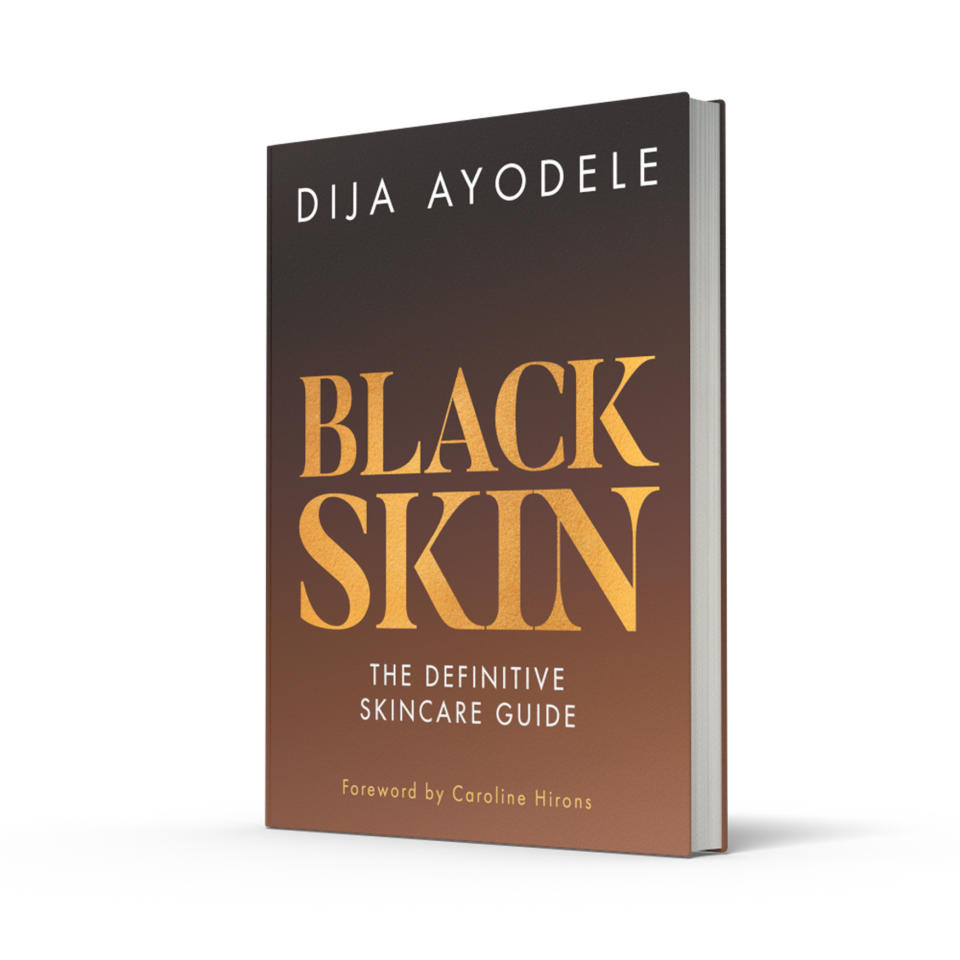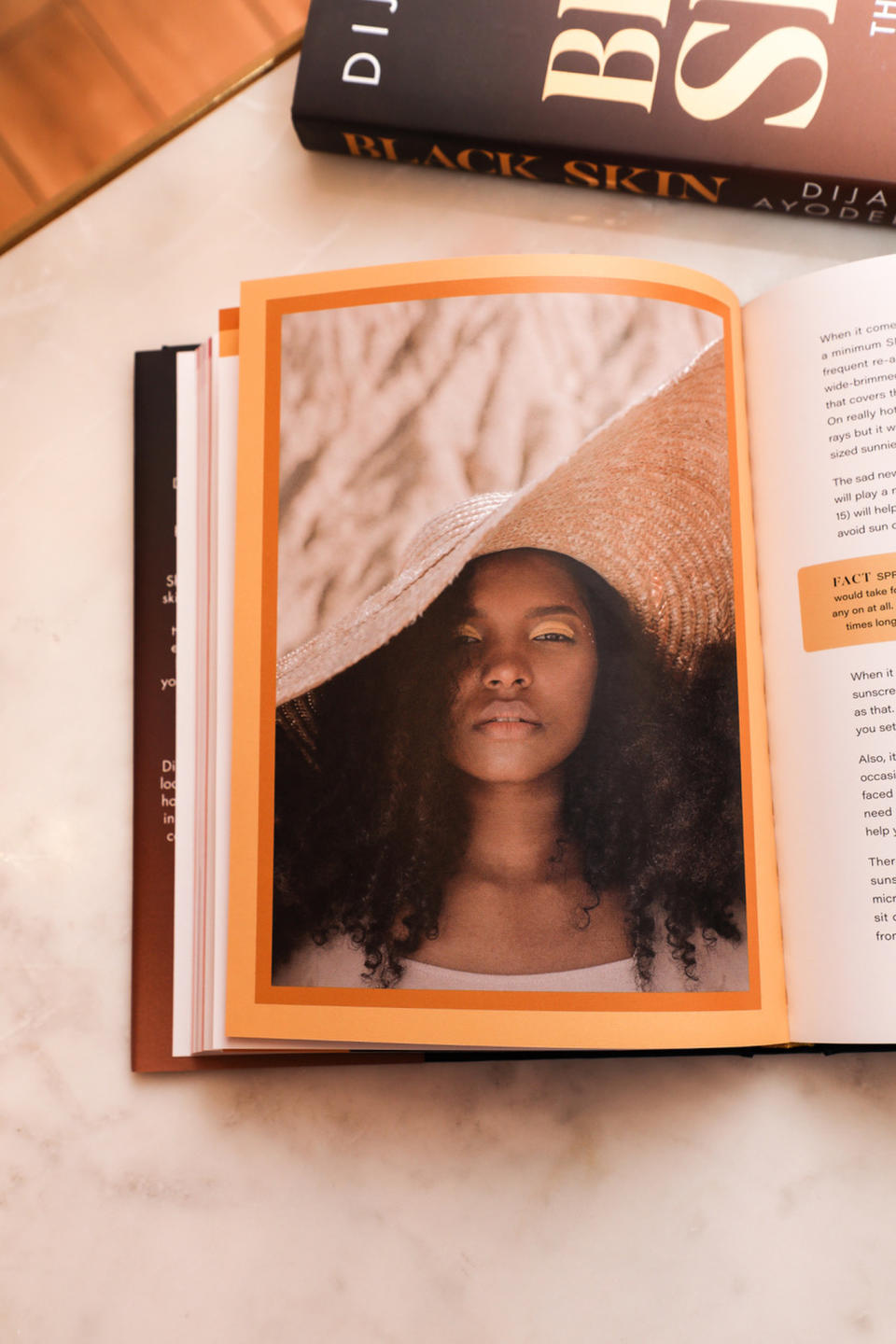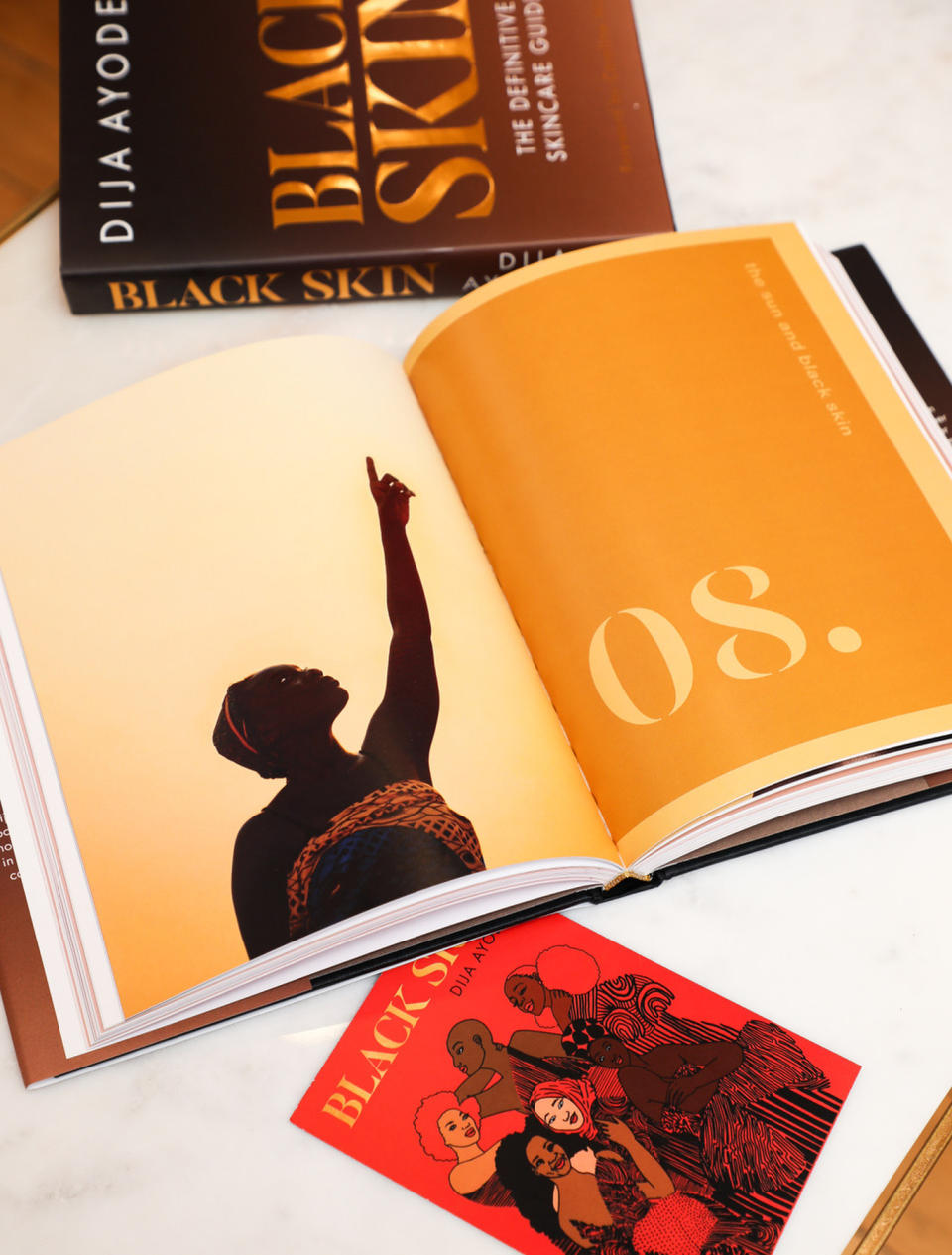Dija Ayodele on Her ‘Black Skin’ Book and Mission to Empower Through Skin Care

PARIS — Dija Ayodele didn’t think beauty could be a viable career. But 15 years ago, during the global recession, she decided to take a big leap, quit her career in finance and dive headfirst into the beauty industry. She launched the “Black Skin Directory,” a platform connecting people of color with skin care professionals, and her London clinic West Room Aesthetics — especially for women of color, who have traditionally been neglected by the mainstream beauty industry.
Now, with the recent publication of her first book “Black Skin,” she wants to talk louder about the beauty needs of Black people and educate beauty professionals and students about how the industry must adapt to foster true inclusion.
More from WWD
Concurrently, she’s getting ready to launch a Global Education Platform, to help fill gaps existing in beauty college courses. Beauty Inc sat down with Ayodele to discuss the biggest learnings and surprises that came with writing her debut book, education and how skin care can empower women and foster sisterhood.
How did you decide to write a book?
D.A.: There was an influx of Black women who were coming to me as clients, and I felt like the mainstream industry didn’t really cater to them. They had to do extra legwork and face extra anxiety around skin care and accessing treatments. There was a lack of knowledge and confidence about what was available in the industry. I knew that there were a lot of myths, a lot of misconceptions. I had all this information and was thinking to myself: ‘How do I make a contribution?’ I also knew that I wanted to write a book that had a little bit more depth to it, a lot of history and [an examination of] how beauty and skin color — especially Black skin color — intersect with the beauty industry.

Courtesy Photo
What are the major steps in your career?
D.A.: I’ve always loved beauty, but I started my career in finance, while doing my [beauty] training on the side. During the recession, I decided to pursue a full-time career in beauty and set up the “Black Skin Directory.” Another pivotal career moment was moving my clinic West Room Aesthetics to its own space, from the room I used to rent in Kensington, London. Creating a safe space available for all women, but especially Black women — bringing that sort of sisterhood community was very key. I always say Black women are my North Star.
What the surprises and biggest learnings that came with writing a book?
D.A.: The level of miscommunication there’s been in the industry, about things like the purchasing power of Black women. When I was in my late teens, I didn’t know that not everyone was using MAC or Bobbi Brown makeup. I thought everybody bought their foundation for 25 or 30 pounds, but in those days, there weren’t many options for Black women in the mass market for, say, 10 pounds. Black women are forced to spend more on their skin care because there’s a lack of choice. We spend more than our white counterparts — around 137.52 pounds more per year, according to the Superdrug Shades of Beauty Report, in 2016. In addition, this report, which surveyed 559 women, found that 70 percent of Black and Asian women feel left out of high-street offerings, and 36 percent felt beauty advice for their skin tones and concerns was lacking. We’re eager to be included in the conversation.
What is your greatest mission fueling your book-writing and specialty?
D.A.: The mission is to empower Black women, ensuring they are not left out of the narrative and have access to the knowledge and information to meet their own skin care needs. The second part of that mission is the education for everybody else: I want to talk about the nuances of Black skin, for example, which aren’t taught unless you have a good lecturer at college. A lot of practitioners come out of educational establishments not knowing how to make differentiations for Black skin. When you don’t know and don’t want to experiment on someone’s skin, you end up saying: ‘I don’t do that on Black skin,’ and leaving Black women without a choice.
Do you see progress on those fronts?
D.A.: I see progress being made every single year, but I would like to see people receiving this knowledge as a basic part of their education. I would like to see brands consider darker skin tones from the onset. Next year, we will be rolling out our Global Education Platform, which is aimed at students and will provide an extra level of professional education.

Courtesy of Dija Ayodele
What are some of your own favorite products for Black skin and why?
D.A.: I like pigmentation products that tackle discoloration and patchy dark marks. Ingredients such as licorice extract, alpha-arbutin, resorcinol, kojic acid and retinoids all help to keep my skin tone even. The product I reach for the most in this category is Skin Better Science Even Tone Serum. I also love sunscreen because it is the easiest and cheapest way to prevent discoloration. My current favorite sunscreens are Glossier Invisible Shield SPF30 and Ultrasun UV Face and Scalp Mist SPF50.
Where do you buy skin care products for yourself?
D.A.: I tend to shop from my clinic, as I prefer clinical-grade products. However, I do mix it up with high-street products from time to time, and Boots is my go-to. It has a wide selection of products that don’t break the bank and there’s always something new to discover, so it’s always a bit of market research as well.
Where do you see gaps in the skin care market for Black people?
D.A.: I see gaps in the way brands educate about their products and how they fail to draw out the benefits that would mostly appeal to the concerns that a lot of Black women and men have. So more can de done about nuancing language better for different demographics. From a product point of view, it would be great to see more in the physical sunscreen space — it can be challenging to find a physical sunscreen that doesn’t leave a white residue on Black skin, and there could be more provision in this area.

Courtesy of Dija Ayodele
What about hair care and other categories for Black people?
D.A.: Hair care and makeup categories are doing tremendously well, with amazing provision online and in-store. I would love to see more smaller independent hair care brands like Ori By Titi, Dizziak, Charlotte Mensah and Trepadora get more mainstream airtime, though.
What are some beauty dos and don’ts, common mistakes and pro-tips?
D.A.: Do book an appointment to see a skin care professional and get bespoke advice on how to treat and manage your skin. Don’t skip sunscreen — it’s important to protect against diseases like skin cancer, but also to prevent sun damage and discoloration of the skin. A common mistake is the assumption that Black skin is tough and resilient because of melanin. It’s not. It’s more sensitive because any trauma to the skin causes excess melanin to be produced, which then causes a patchy and uneven skin tone.
Pro-tips: Leave professional skin care procedures, such as chemical peels and micro-needling, to professionals in a safe, sterile environment. By the same token, Botox and fillers should only be performed by qualified doctors and nurses. If your aesthetician or beauty therapist offers you an injectable, run like the wind.
See Also:
Tracee Ellis Ross on Diversity and Products With Purpose at the 2021 Beauty Inc Awards
What the Beauty Industry Isn’t Getting About How to Support Black Businesses
The Fashion and Race Database Wants to Correct the Mis-Education of Fashion
Sign up for WWD's Newsletter. For the latest news, follow us on Twitter, Facebook, and Instagram.

